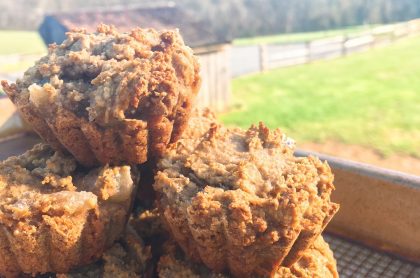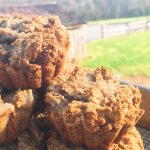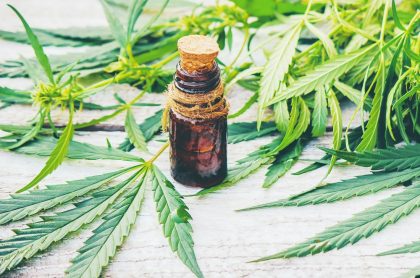Shouldn’t I be losing weight on a plant-based diet?


Lots of people who have recently transitioned to a plant-based diet have been asking, “shouldn’t I be losing weight on a plant-based diet?”
It’s a valid query, as it’s one of the most fundamental lessons in nutrition, and even the majority of young children have it ingrained in their brains: if you want to be strong and healthy, you need to eat your vegetables. What’s more, numerous studies use this notion to demonstrate the effectiveness of a plant-based diet and how it can keep us healthy and lean. In fact, many believe that a vegan diet is the best solution to help you lose weight and keep that excess body fat in check.
I too believe that a plant-based diet (especially one that consists entirely of unrefined whole foods) low in fats (especially saturated fats) and high in dietary fiber, vitamins, minerals, protein, and phytochemicals can help you avoid chronic disease. See, it’s not just about losing weight.
A vegan diet can also help you to live longer by significantly reducing the risk of hypertension, heart disease, diabetes and some forms of cancer that are so common in the high-protein, high fat “Western diet”. And for those concerned, it’s also an inherently more ethical diet due to the fact that it is free of animal suffering and infinitely less damaging to the planet than a diet that’s rich in animal foods.
At the same time, however, it’s important to note that shunning meat, fish, eggs, and dairy products isn’t a magical panacea that will result in shredded abs and low cholesterol overnight. And no, it’s not right for everyone. In fact, there are many who turn to a vegan eating and, after a few months become disappointed and disillusioned that they’re not losing weight on a plant-based diet.
If you’re still struggling to shed the pounds after several months on a vegan diet, these may be the reasons why…
Remember: Just Because It’s Vegan Doesn’t Mean It’s Healthy
Can a vegan diet be healthier than an omnivorous or “Western” diet? Absolutely. Is it inherently healthier? Not necessarily. The exponential rise in omnivores taking up a plant-based diet for ethical or health reasons has led to a plethora of heavily processed plant-based foods flooding the market. Many of these are designed to look, taste, and cook like meat in order to ease the transition for meat lovers.
While this is great for those who have turned to veganism for ethical reasons but really miss the taste of meat, it’s less advantageous for those who are turning to a plant-based diet for weight loss.
 In fact, all those vegan burgers, “steaks”, “wings” and other meat substitutes (not to mention all the desserts and candy bars which are now vegan) have made it just as challenging for vegans to eat healthily as it has been for omnivores for decades.
In fact, all those vegan burgers, “steaks”, “wings” and other meat substitutes (not to mention all the desserts and candy bars which are now vegan) have made it just as challenging for vegans to eat healthily as it has been for omnivores for decades.
If you’re struggling to start losing weight on a plant-based diet, try and focus on a diet that’s entirely (or at least mostly) comprised of whole foods. This means go for veggies, grains, nuts, seeds, legumes, and fruits as opposed to anything that is packaged.
Are Your Expectations Realistic?
Even a whole foods, plant-based diet won’t transform your body overnight. As a society, we’ve become so fixated on quick and easy two-week weight loss transformations and jaw-droppingly fast results (like those promised by Atkins and other fad diets), that we can be unrealistic in our expectations. Not
surprisingly, fast results are often quickly lost.
Keeping your expectations realistic is important to give you a sense of accomplishment and keep yourself motivated. Which brings me to the next point…
Are You Tracking Your Progress?
You may be making more progress towards your fitness and weight loss goals than you realize. All too often we assume that we aren’t getting anywhere because we don’t do enough to track our progress.
While nobody relishes the thought of stepping onto the scale, taking measurements, or taking photos of themselves in the mirror, it’s the best way to check progress against your own body goals.
Keep a journal that will allow you to reflect on your journey and take pride in all that you have accomplished. It will also help you to identify times at which you have plateaued in your weight loss or fitness. The earlier you realize this, the better placed you are to try things that can help you break through that plateau, like switching up your exercise regimen, introducing a new superfood into your diet, or ditching a familiar favorite that may be standing in the way of achieving the results you deserve. Speaking of which…
Could You Have an Undiagnosed Food Intolerance?
It’s important to remember that even if you never experienced food intolerances as a child, this doesn’t mean that you can’t experience them in your adult life. Food intolerances can develop at any age and can lead to fluctuations in your hormone levels and body chemistry. This can leave you not only feeling bloated, cranky, and miserable but can actively stand in the way of you achieving your health and fitness goals.
It’s important to spot the signs of food intolerance such as:
• Gas, cramps, or bloating
• Headaches
• Nausea
• Heartburn
• Intense stomach pain
• Irritability
• Nervousness
• Diarrhea
Obviously, none of these are conducive to a great workout or a satisfying meal, and can cause your body great distress – even if you’re not trying to lose weight! If you need help identifying your own food intolerances, let me help you!
I have a proven method to not only get to the underlying causes but will help you incorporate tasty and better-for-you foods to make your meals – and daily routines – enjoyable again!
I can also help you get to the underlying causes of why you aren’t ditching that weight as you had hoped – whether or not you’ve decided to go plant-based – so let me help!
More in Nutrition
-
Your health destiny is not your child’s health destiny
inAre you thinking about having kids, but have poor health yourself? Do you want to give your child a better health destiny than your own?
-
Gut-friendly muffins when you’re stuck at home
inGut-friendly muffins can be just the thing to bake when you’re stuck at home during these difficult times.
-
Is there a connection between cancer, diet and CBD?
inAs more and more Americans get sick with cancer, Holistic Cannabis Practitioner Erin Kenney looks at the connection between cancer, diet and CBD.







